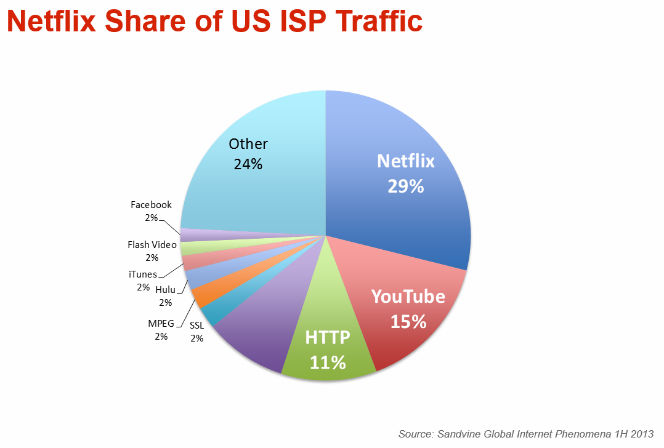Interesting talk from Nina Bargisen of Netflix. What surprised me was the chart she showed of the main traffic drivers on ISP networks in the USA. Netflix comes out top, representing 29% of all traffic carried by ISPs in the US. YouTube is only 15% of traffic with http coming third at 11%.
The thing to consider here is that as people move to higher quality video -3D, Super HD, Ultra HD (4k) and ultimately 8k format the percentage of traffic that is video is clearly going to grow. Also clear is that this move to higher bandwidth video is going to seriously drive bandwidth requirements – both in operator networks and at the home broadband level.
Netflix recommend that you need 12Mbps bandwidth to carry 3D and between 5 and 7 (optimally) for Super HD. In the UK you would therefore be able to stream one 3D video or two Super HD, assuming an average download bandwidth of 14Mbps. 4k video will need 15Mbps per stream.
If for the sake of argument we assume that Netflix and YouTube represent all the video traffic in the USA then as 4k comes on stream and the bandwidth required to support it therefore doubles then video could well end up at almost 90% of all internet traffic. I realise that other applications will also grow their bandwidth needs but I don’t think I’m a million miles off the mark.
It’s coming folks. Better get your broadband speeded up. Pic below is of the chart shown by Nina at the conference.
PS no idea why people watch TV – the only good stuff on is Time Team and Storage Hunters and I’ve already seen Mary Poppins quite a few times.
 chart courtesy of Netflix and Sandvine
chart courtesy of Netflix and Sandvine
